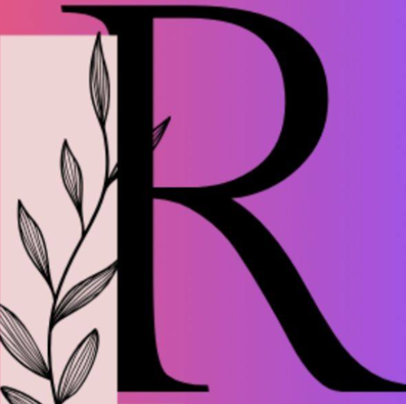Mastering the Art of Reading for Life-Long Learning and Success
Reading is not just a hobby; it is an opening to knowledge, self-improvement, and mental well-being. The best reading habits can do much for you, both personally and professionally; they will enhance your vocabulary, awaken your imagination, reduce stress, and much more.
This extensive guide presents the very best reading habits to be practiced for full potential unlocking and goal achievement.
Set a Reading Goal

Setting a specific and achievable reading goal is the first step toward developing a sustainable reading habit. Goals keep you focused and motivated. Start by deciding how many books you want to read in a month or a year, then break this down into smaller chunks: pages per day or chapters per week.
For example, if your aim is to read 24 books per year, it translates roughly to two books a month or one chapter a day depending on a book’s length. A tangible target will create a sense of purpose and achievement.
Prepare a Reading Timetable

Make sure reading becomes part of their normal life. Set a special time every day for reading, that one particular time when you could be by yourself without interruption. For many, this special moment can be found in the early hours of the morning or late at night; but the best time to keep is when you definitely can regularly slot into the activity.
Treat it like any serious appointment. Consistency is rather vital: Twenty minutes per day will get you well on your way, as you will eventually find those reading abilities significantly increased, so will the number of Reading books you finish reading over a year.
Create a Reading Space

A well-defined, comfort, Relax and quiet space for reading can help your concentration and enjoyment. Whether it’s a lovely nook in your living room or a cozy corner of a public library, the reading area should help minimize all distractions and with good lighting.
Fill it with your favorite reading paraphernalia: comfy cushions, a nice warm throw, and an adequately bright reading lamp. It could be this special place that turns into your retreat for unwinding and intellectual growth.
Carry a Book Always

You never know just when you will be given a few free minutes. To maximize any downtime, you must keep a book on your person—be it hard copy, digital, or audiobook. Apps such as Kindle or Audible are perfect for the expeditionary soul.
Waiting in line, riding the subway, or eating lunch alone: these are all chances to snatch a couple of minutes of reading.
Wise Use of Technology

E-readers, audiobooks, reading applications-this is the new wizardry by which to consume content. Use alternative modes of reading if you are finding difficulty using the regular one. Listen to audiobooks while commuting or exercising for better ways of reading.
Technology also gives one features like highlighting Books, note-taking, and syncing across devices making it a seamless interactive experience while reading.
Reading Journal

Establish a journal and write about your reading experience. It could be summaries, favorite quotes, your thoughts, and new vocabulary. This will make every bit of reading relevant, improve your understanding, and would help in keeping it retained.
As time goes on, your journal shall become a personalized databank for insight and literary treasure. You could rate your books and even keep track of your emotions towards them.
Join a Club or Reading Group

Nothing hones your perception of a book like talking about it with other readers-and it also helps you discover titles you might otherwise pass by. Book clubs help you be accountable for finishing what you started. Websites like Goodreads or local meetups provide mediums for discussing ideas and various viewpoints.
Diversify Your Reading List

Open your mind and immerse yourself in various genres, authors, and cultures. This approach keeps reading fresh and builds up your knowledge and outlook. Add fiction, non-fiction, biography, and classic texts. You might try having themed months: one for science fiction, one for historical novels, and one for self-help or philosophy.
Reading from a wide range of genres prepares you to become a well-rounded thinker.
Practice Active Reading

Active reading means that you do not simply read the text for pleasure; rather, you interact with it; highlight the important parts, jot notes, ask questions, and relate the material to your life or other books read. Make reading more interactive Book and meaningful.
Active reading is especially beneficial for having academic or professional development because it helps one in distilling important insights and keeping the information in one’s memory.
Keep Digital Distractions to a Minimum

Smartphones and social media readily break your reading flow. Keep your devices silent or download decluttered notifications while reading. Comprehension and enjoyment of reading are better with a focus.
Try apps like Freedom or Forest that will help you avoid temptations to look at your phone.
Revisit Favourite Reads

Picking up old favorites gives so much more satisfaction and food for thought. It’s almost like you’re reading a completely different author. Reinforce an idea, or experience, or tie your emotions even stronger with the text.
Many literary works, like Anne Dillard or Lorrie Moore, carry home the deeper meaning only when they have accumulated days or weeks in your life.”At one point in 1979,” as Alice Walker would say in “The Diary of an African Nobel Woman”, “I wanted…” See where it all leads for you from here.
As a bonus, reading something keeps growing; you now know so many layers to unravel on your own.
Monitor Your Progress

Use Goodreads if you like to track your reading habits, write reviews, and take recommendations. Seeing how much you have progressed boosts motivation and leaves you with a rewarding sense of achievement.
Create reading challenges annually and share milestones with friends or followers. It helps to keep you accountable.
/span>
Keep Track of Your Reading Progress

Track your reading habits, write reviews, and take recommendations on Goodreads. Demonstration on how much one has progressed serves to increase motivation and adds a rewarding sense of accomplishment. Establish annual reading challenges and share milestones with peers or followers.
This helps in holding accountability. Share or Teach with your Reading Experience. Teaching what you have learned enables one to internalize things learned. Be it a blog, podcast, or casual talk, anything with the intention of turning passive reading into active learning.
Such a proposal can include setting up a bookstagram account, writing medium essays, or engaging in online discussion forums. Teaching only solidifies your understanding of the materials.
Final Statement
Reading habits do not constitute only reading more than before but reading better, and integrating these practices into your daily life promises developing a love for reading that would support personal growth, enhanced mental health, and access to more endless opportunities.
These habits could either make a difference to someone who is just starting to read or someone who reads like a ravenous wolf. It is not Exam race; it is a journey. Have the aim; enjoy each moment; allow books to one’s life.
You may start today. Choose a book, find a comfortable spot, and sink into it.






